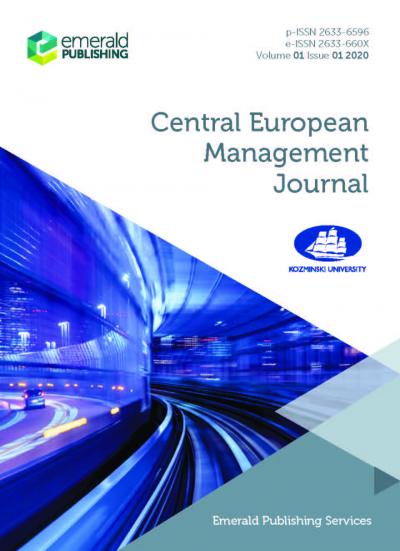Etatism versus liberalism: Economic attitudes in Poland after the world crisis
Krzysztof Zagórski
Kozminski University
2018 26 (1) Central European Management Journal
DOI 10.7206/jmba.ce.2450-7814.223








